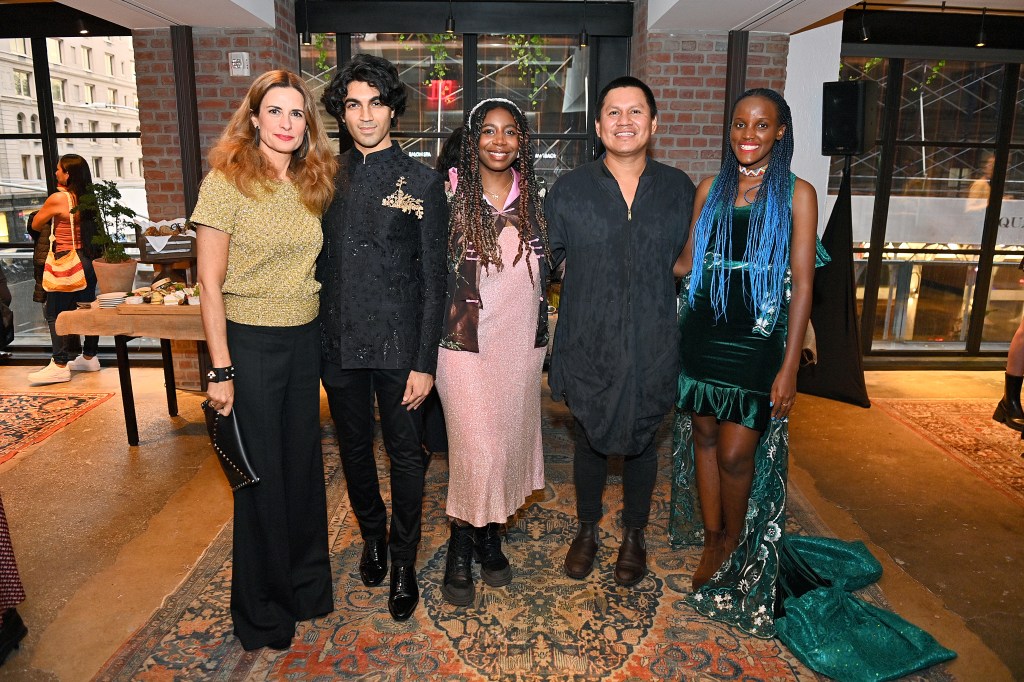
NEW YORK — Already, activations, climate salons, soirées and panels are plenty as fashion and beauty businesses inch further into Climate Week.
On Monday, Aesop held a climate salon at Brooklyn Navy Yard in partnership with the Urban Design Forum exploring design, architecture and the future of sustainable cities. Also that night, the Green Carpet Fashion Awards hosted a cocktail hour at 1 Hotel Central Park convening activists, models and change makers, among them Cameron Russel and Livia Firth.
Apparel and textile nonprofits from the Sustainable Apparel Coalition, Textile Exchange and Apparel Impact Institute announced new strides Tuesday.
The Sustainable Apparel Coalition introduced an evolution to its strategy, which will move the organization from solely a tools-based strategy to all-encompassing programs, aligned with industry peers.
“We stand at a crossroads. We can either remain passive participants or become catalysts for profound, industry-wide change,” Amina Razvi, chief executive officer of the Sustainable Apparel Coalition, said in a press statement. “This isn’t just the SAC’s journey; it’s a collective endeavor. Your involvement is the accelerator for our shared impact. We’re not merely ticking boxes; we’re drafting the blueprint for sustainable industries worldwide.” Razvi was part of a panel at The Nest Climate Campus held at the Javits Center.
Three pillars underpin the organization’s next chapter and mirror the changing tides in a world gripped by the climate crisis, including “combating climate change,” “decent work for all” and a “nature-positive future.” In all, the SAC’s membership spans more than 280 fashion members including brands, retailers, manufacturers, suppliers, NGOs, academia and more.
The SAC also manages the Higg Index suite of tools and will reveal the latest update to its Higg Facility Environmental Module (Higg FEM 4.0) in November. Users can anticipate improved data precision, alignment with Greenhouse Gas Protocol and Zero Discharge Hazardous Chemicals and science-based reporting, expanded scope of environmental issues, and more user-centric design and audit efficiency, per the organization. The latter update is said to significantly reduce the need for data redundancy, meaning suppliers don’t have to duplicate audits across brand partners.
Also on Tuesday, Textile Exchange revealed the newest version of its Preferred Fiber and Materials Matrix. Publicly available for the first time, the matrix encloses updated human rights, chemical management and initiative integrity content for apparel players to assess their sustainability performance across materials.
In a webinar held earlier this fall, Beth Jensen, the director of Textile Exchange’s Climate+ Strategy said the matrix takes a “broader view of holistic impact beyond what can be measured from life cycle assessment today,” in a nod to qualitative data additions.
Textile Exchange adopted the PFMM in 2020, which was originally conceived by Gap Inc. for its internal designers and product teams. The lifecycle assessment data uses Higg Materials Sustainability Index as one piece of data. More than 80 indicators were included among them qualitative human rights indicators, ZDHC and the Global Organic Textiles Standard.
“This tool is not designed for any public-facing regulatory claims,” Jensen underscored in the webinar.
Meanwhile, Apparel Impact institute announced the first grantees for its $250 million grant program supported by H&M Foundation, H&M Group, Lululemon and PVH, among others.
Grant winners stood out from a pool of 150 applicants and included BluWin (supplier carbon reduction initiative), GIZ (solar), Made2Flow (supply chain software), Precision Development (efficiency tool for cotton growers) and consulting firm PwC. The innovations are listed on Apparel Impact Institute’s Climate Solutions Portfolio which bookmarks credible emissions-reducing solutions in the space.
